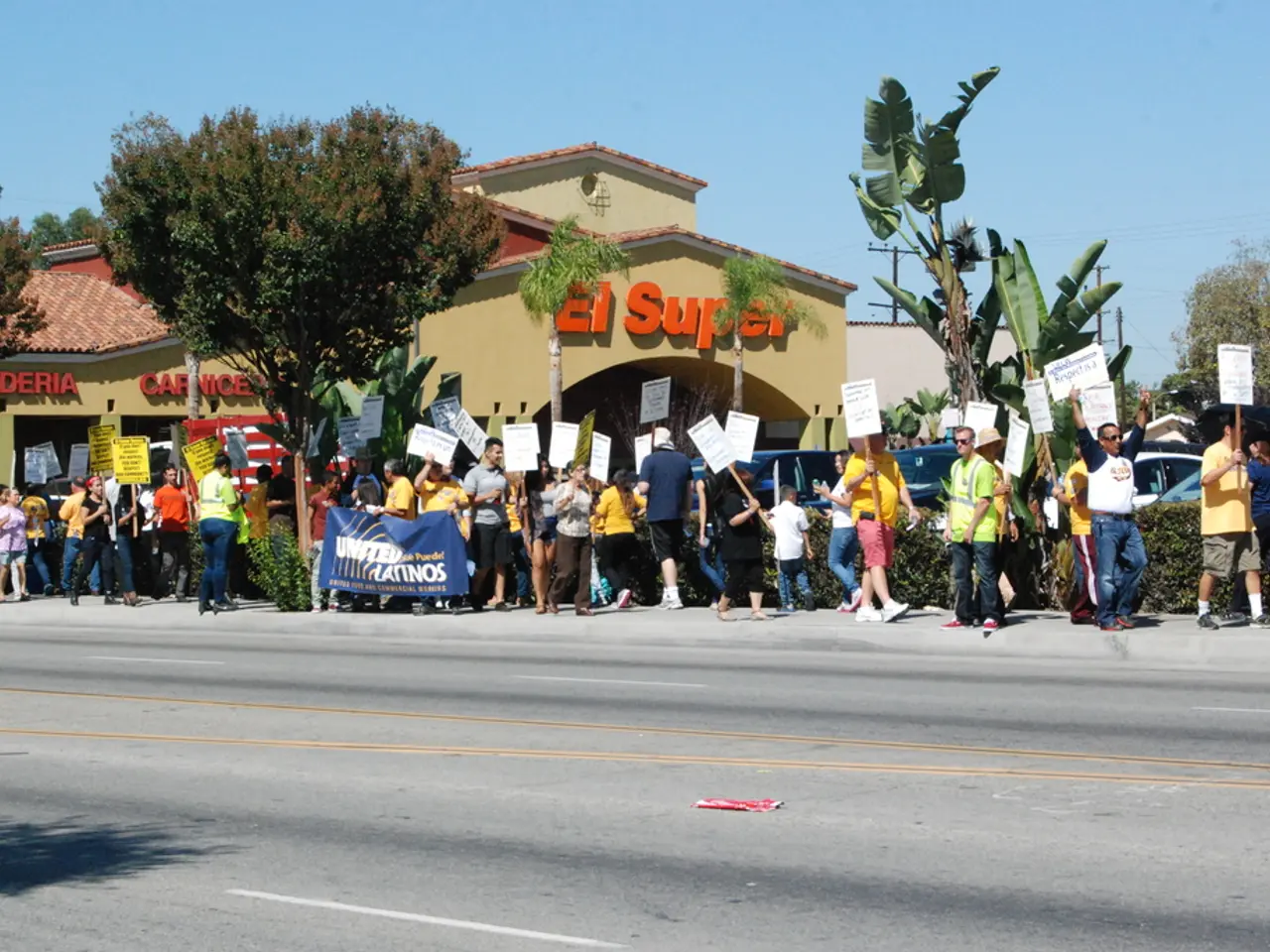Potential Consequences if Trump Deploys National Guard in Washington D.C.
The unique status of Washington D.C. as a federal district gives the President of the United States direct control over the D.C. National Guard, a privilege not afforded to governors in the 50 states. This arrangement, which sets D.C. apart from the rest of the nation, has recently sparked controversy and raised questions about the potential deployment of federal troops in the city.
In a typical state, the governor commands the National Guard units within their jurisdiction. However, in D.C., the President holds exclusive authority over the National Guard, with the D.C. National Guard reporting directly to the President, not to any local government or mayor. This direct line of command allows for more immediate deployment of the National Guard for supporting law enforcement activities within D.C., such as recent considerations to deploy the Guard to address violent crime in the city.
However, a full federal takeover of D.C.’s local law enforcement or permanent control over the city would require Congressional legislation, such as repealing the Home Rule Act. This act, passed in 1973, ceded some of the U.S. Congress's authority and oversight over D.C. to local government entities.
The President's control over the D.C. National Guard was evident during the 2020 protests following the police killing of George Floyd, when personnel from various federal authorities, including the National Guard, FBI, ICE, and others, were present in the city. This presence elicited criticism from D.C. officials and resulted in images of authorities dressed in full fatigues patrolling the city's downtown.
Recent threats by President Donald Trump to take over and "run" Washington, D.C., following an attempted carjacking of a former Department of Government Efficiency employee, have raised concerns about the potential deployment of federal troops in the city. Experts suggest that such a move would be unprecedented, as it is "not clear that D.C. is, in fact, undergoing a public safety crisis."
William Banks, professor emeritus of public administration and international affairs at Syracuse University, points out that bringing in outsiders to enforce law and order is "against the grain" of how Americans prefer laws to be enforced, as they prefer local police who are close to the community. Claire Finkelstein, a professor at the University of Pennsylvania, recommends that the National Guard should leave law enforcement to the police.
It is important to note that while the President has direct command over the D.C. National Guard, national authorities in D.C. cannot intimidate, search and seize without reasonable suspicion, or target individuals based on political beliefs or political expression. This limitation ensures that the presence of federal troops in the city does not infringe upon the civil liberties of its residents.
In conclusion, the President's direct and exclusive command over the D.C. National Guard sets D.C. apart from the rest of the states. While this arrangement allows for more immediate deployment of the National Guard for supporting law enforcement activities within D.C., a full federal takeover of D.C.’s local law enforcement or permanent control over the city would require Congressional legislation. The potential deployment of federal troops in D.C. remains a controversial topic, with experts emphasizing the importance of local police and the preservation of civil liberties.
- Politically charged disputes have arisen regarding the potential deployment of federal troops in Washington D.C., particularly in light of recent threats by President Donald Trump.
- A full federal takeover of D.C.’s local law enforcement or permanent control over the city would necessitate policy-and-legislation changes, such as repealing the Home Rule Act.
- General-news headlines have highlighted the controversy surrounding the President's control over the D.C. National Guard, with experts urging caution in the deployment of federal forces, citing concerns about crime-and-justice situations being handled by local authorities.






